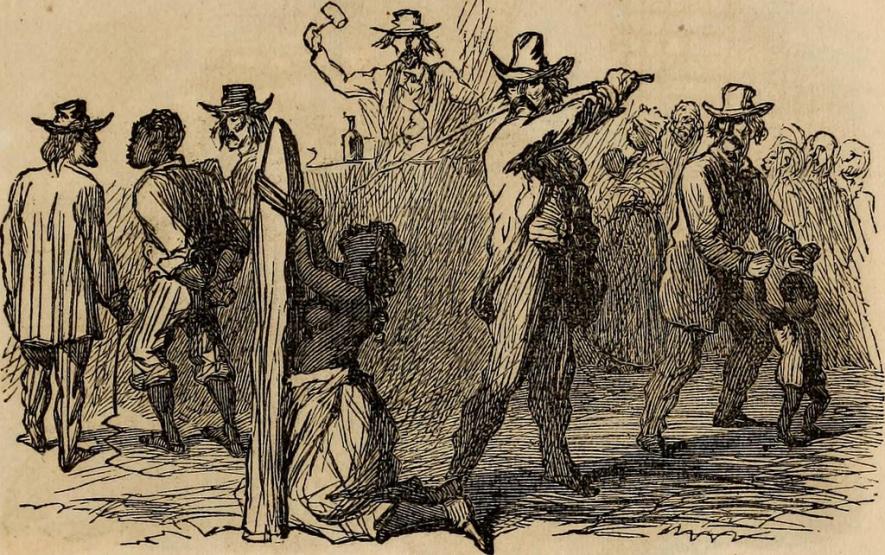Did You Know that the US National Anthem Justifies Slavery?
The United States celebrated the Fourth of July, its “Independence Day”, as usual, with fireworks, parades and competitive hot dog eating.
While the festivities and shows of patriotism attract much press coverage, few pause to think about the meaning of the US national anthem, "The Star-Spangled Banner".
"The Star-Spangled Banner" was adopted as the national anthem in 1931, but its lyrics, written by Francis Scott Key in 1814, reveal some forgotten aspects about the history of the country.
The very first stanza of the poem contains these lines:
"And the rockets' red glare, the bombs bursting in air,
Gave proof through the night that our flag was still there".

Image Courtesy: flickr
Not many people know that the rockets mentioned here refer specifically to the Congreve rockets which the British used against the Americans during the Battle of Baltimore in the War of 1812. Francis Scott Key, the author of the anthem, was an American prisoner on a British ship, and witnessed the bombardment of Fort McHenry in Baltimore during the battle. Key could see the flag flying over the fort lit up by the Congreve rockets – which inspired him to pen the poem.
The Congreve rocket has an interesting connection to India - it was developed by the British army engineer William Congreve, who had served in the Anglo-Mysore War. Congreve saw the effective use of rockets against the British by the Mysore forces led by Hyder Ali and Tipu Sultan – the then pioneers in advanced rocketry. He subsequently built and demonstrated a rocket himself in 1805. The British forces used the Congreve rockets against France throughout the Napoleonic Wars, and then in the war against the United States.
Another aspect of the US national anthem was brought into the spotlight last year by the furore following the refusal of American football player Colin Kaepernick to stand during the playing of the anthem. This was the anthem’s justification of slavery and celebration of the murder of slaves, in its third stanza:
“No refuge could save the hireling and slave
From the terror of flight, or the gloom of the grave”.
The British military had actively recruited American slaves, and pledged that no one would be given back to their “owners”. Winning the support of the Black population was seen by the British as key to military success. A large number of blacks deserted the Americans and made their way to the ships of the British. The adult men among them participated in many of the important battles, including the raid on Washington in August 1814.
Thus when Francis Key wrote “No refuge could save the hireling and slave / From the terror of flight or the gloom of the grave”, he was giving expression to his delight at the defeat and death of the blacks who had freed themselves from slavery. This was not at all surprising, considering the fact that Key was a slave-owner himself.
So when Key wrote, “And the star-spangled banner in triumph doth wave /
O'er the land of the free and the home of the brave”, it certainly did not mean freedom for the slaves. Rather it meant the freedom to keep blacks under the jackboot of slavery.
Disclaimer: The views expressed here are the author's personal views, and do not necessarily represent the views of Newsclick
Get the latest reports & analysis with people's perspective on Protests, movements & deep analytical videos, discussions of the current affairs in your Telegram app. Subscribe to NewsClick's Telegram channel & get Real-Time updates on stories, as they get published on our website.























